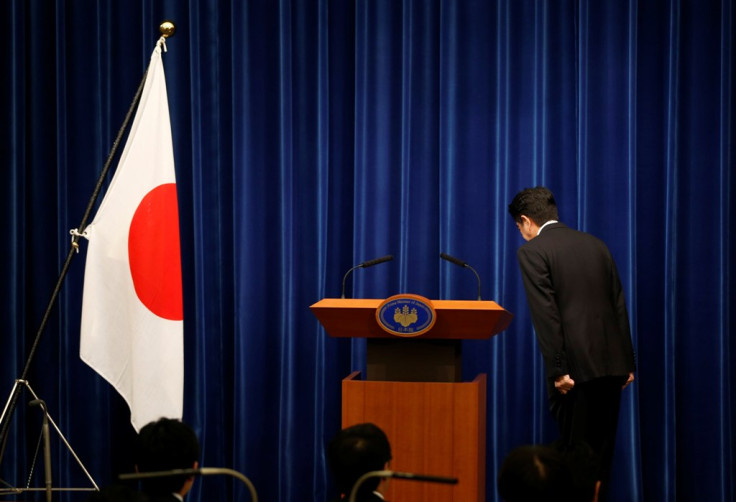Japan: Stocks Hit Fresh Seven-Year Highs on Talk of Tax Hike Delay and Snap Elections
Abe could defer October 2015's tax increase to April 2017 and call a general election for December.

Japanese stocks hit fresh seven-year highs on 12 November on rumours that Prime Minister Shinzo Abe could push back a looming consumption tax increase and garner support for future economic reforms with elections.
The Japanese Nikkei 225 share average finished 72.94 points, or 0.43%, higher at 17,197.05, its highest since October 2007, on news that Abe could postpone the planned tax hike and call a general election for December. The benchmark index has gained 5.58% this year.
Traders drew their cues from a report in the conservative Sankei newspaper, which said Abe would delay the tax increase by a year-and-a-half to April 2017 and call a snap election for the parliament's lower house.
Abe was to decide by the end of the year whether to raise the nation's sales-tax rate, from 8% to 10%, effective October 2015.
Societe Generale Cross Asset Research said in a note to clients: "Year-to-date, [Topix] is up 4.4% and has underperformed the US equity market. The current equity risk premium of 4.7% is above the long-term average of 2.4%.
"Furthermore, the rate of return on Japanese equity (5.2%) is above the long-term average of 4.7%. From a valuation perspective, Japanese equity is attractive on an absolute basis as well as relative to JGBs."
Societe Generale Cross Asset Research said in a separate note: "The risk that PM Abe will delay the second consumption tax (CT) hike is rapidly increasing. If this materialises, the lower house may be dissolved and an election could be held in around mid-December at the earliest. It is highly likely that the coalition between the LDP and the New Komeito would maintain its majority in the lower house after the election.
"With voter confidence in Abe's policies, the government would be on a firmer footing to implement its growth and reform strategies. This would be positive for Japan's economy as it would reduce uncertainty over the downside risks stemming from a second CT hike. This should in turn raise the expected growth and inflation rates, leading to stronger corporate activity and stronger aggregate wage expansion."
April Tax Hike
Consumer prices in the world's third largest economy struck a 23-year high in April 2014 in the wake of the 1 April sales tax hike, a positive development in Tokyo's near two-decade-long battle against deflation.
But higher prices resulted in a bigger-than-expected drop in consumer spending and a higher-than-expected slowdown in factory activity in April, government data showed.
© Copyright IBTimes 2025. All rights reserved.





















